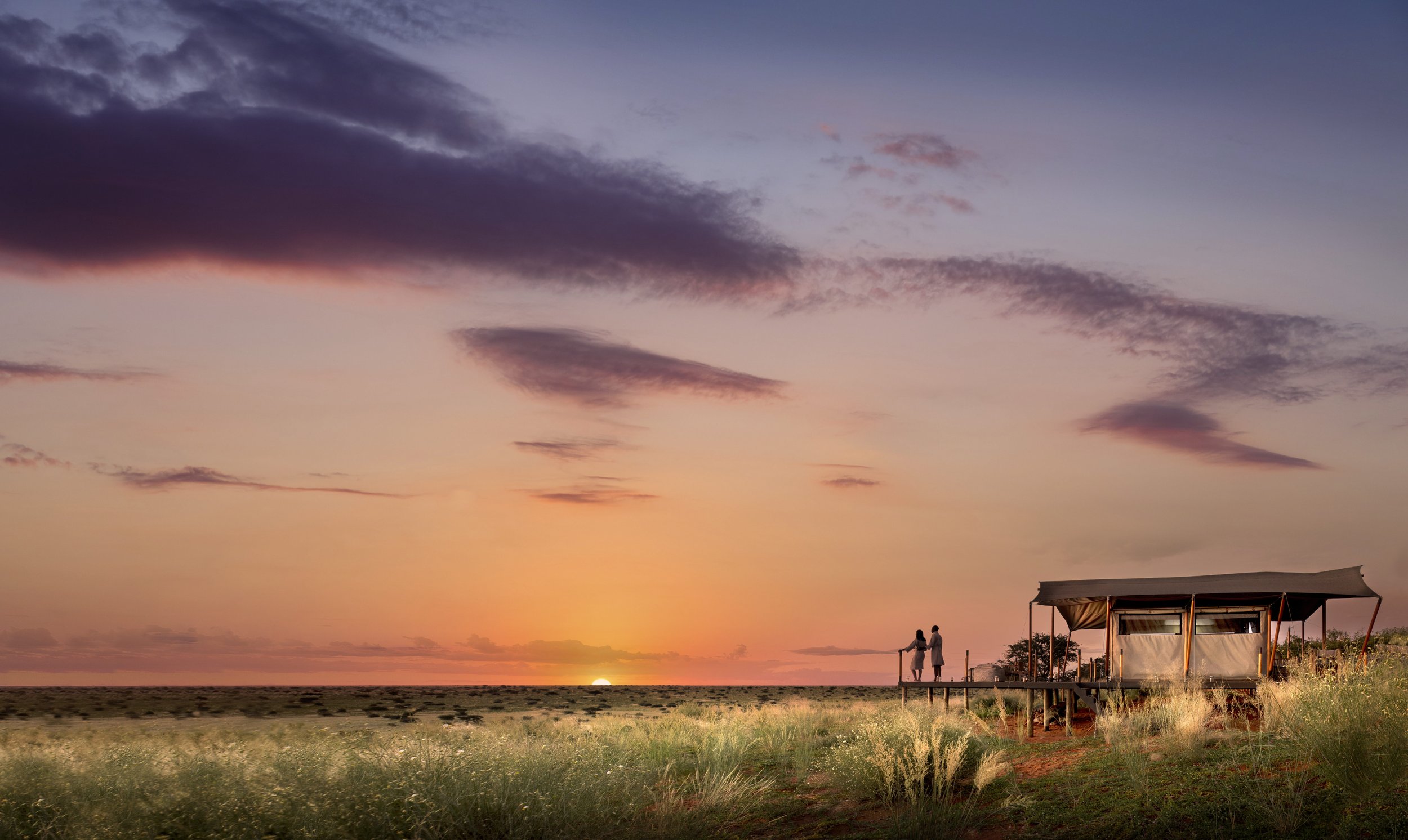Tswalu Kalahari
SOUTHERN KALAHARI, SOUTH AFRICA

Tswalu Kalahari
Eco Lodges
since june 2020
Tswalu restores the Kalahari through sustainable conservation, supported by nature-based tourism. This sustainable conservation journey focuses on a high-value, low-impact ecotourism model that prioritizes community and culture.
Tswalu is a story of restoration. Tswalu Kalahari Reserve is a regenerative conservation success story. The three exclusive camps on 114,000 hectares are found to be the largest privately protected area in the Kalahari in South Africa and have the lowest ratio of guests to space. A highlight of spending time in this landscape is tracking some of the rare and elusive creatures that emerge at night, such as the brown hyena, aardvark, aardwolf, and pangolin. Guests spend time learning about the scientific research supported by the Tswalu Foundation and are part of a bold conservation vision to leave the world better than it was found.



CONSERVATION
A private protected area conserving 114,000 ha includes nearly 500 species of mammals, birds, butterflies, and reptiles.
The Tswalu Foundation funds 22 research projects, working with researchers and academic institutions to build and advance collective knowledge.
COMMUNITY
The Tswalu Health Care Centre provides accessible health care to 5711 patients in the greater community and region.
The Tshameka Preschool provides an exceptional educational foundation for two- to six-year-olds to learn and play and includes a daily nutritional meal and time in nature.
CULTURE
An Artists in Residence programme showcases South African artists and creates a unique space for the artists to portray this vulnerable landscape and nature.
Gastronomy here is integral to social life, and Pampa Grande’s women play a key role in preserving and passing on traditional culinary knowledge. The ‘Klein Jan’ restaurant tells the story of South African culture through food, from the old to the new.
COMMERCE
The nature-based tourism model of Tswalu invested USD 5,136,000 in nature and people in 2022.
Tourism provides job opportunities and develops the local economy. The three exclusive safari camps have the lowest guest-to-area ratio in South Africa.
Tswalu Kalahari’s Highlights






For more information visit:
www.tswalu.com
← LENGISHU HOUSE
SASAAB →
BACK TO MEMBERS










